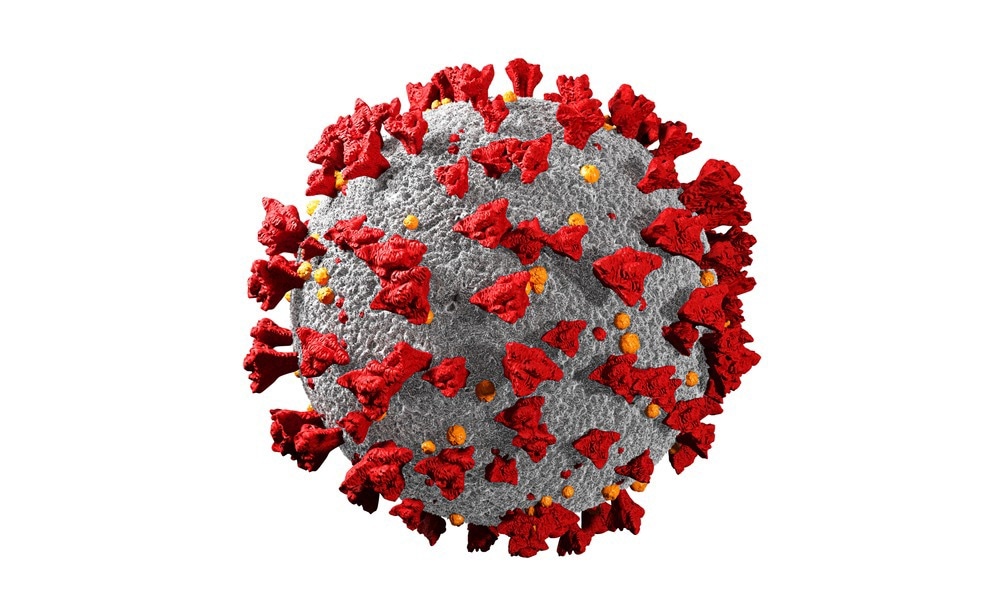The COVID-19 pandemic highlighted how crucial it is to have treatments ready to prevent viral epidemics, which can otherwise have disastrous effects. There is an immediate need for adaptable platform technologies that could be quickly repurposed to combat viral outbreaks to prepare for the next pandemic or Disease X.

Image Credit: Vector-3D/Shutterstock.com
Under the direction of Assistant Professor Minh Le of the Department of Pharmacology at the Yong Loo Lin School of Medicine, National University of Singapore (NUS Medicine) and the Institute for Digital Medicine (WisDM), a group of researchers found that nanoparticles called “extracellular vesicles” (EVs) released by cells have the ability to reduce the infectiousness of SARS-CoV-2, including both wild type and variant strains, as well as possibly other infectious diseases.
Our study showed that these cell-derived nanoparticles are effective carriers of drugs that target viral genes precisely. These EVs are therefore an efficient tool for therapeutic intervention in patients who are infected with COVID-19 or other infectious diseases.
Minh Le, Assistant Professor, Institute for Digital Medicine (WisDM) and Department of Pharmacology, Yong Loo Lin School of Medicine, National University of Singapore
The study, which was carried out in collaboration with NUS Medicine’s Biosafety Level 3 (BSL3) Core Facility, the Cancer Science Institute of Singapore at the National University of Singapore, and the School of Physical and Mathematical Sciences at Nanyang Technological University (NTU), revealed potent inhibition of COVID-19 infection in laboratory models utilizing a combination of EV-based inhibition and antisense RNA therapy mediated by antisense oligonucleotides (ASOs).
ASOs are a versatile tool that can be used on any gene of interest. They can recognize and bind to complementary sections of target RNA molecules, causing inhibition and destruction.
The authors used human red blood cell-derived EVs to transport ASOs to critical locations infected with SARS-CoV-2, resulting in an effective reduction of SARS-CoV-2 infection and replication. The researchers also revealed that EVs have particular antiviral capabilities, including the ability to disrupt phosphatidylserine (PS) receptor-mediated viral infection pathways—a crucial pathway used by many viruses to enable viral infection.
These viral inhibitory mechanisms were relevant to many SARS-CoV-2 variations, including the Delta and Omicron strains, ensuring their broad anti-SARS-CoV-2 efficacy.
The study’s findings lead to anti-sense RNA therapy with ASOs as a potentially successful technique for combating future virus outbreaks. The technology created to distribute ASOs via EVs to target the SARS-CoV-2 viral genes can easily be adapted to treat other viral diseases by substituting the ASO sequences with those complementary to the target viral genes.
The study’s first authors, Assistant Professor Le and her graduate students Migara Jay and Gao Chang, are currently designing more potent combinations of ASOs with the use of artificial intelligence prediction models to achieve enhanced viral suppression.
This collaborative endeavor comprises collaboration with the research teams of Associate Professor Edward Chow from WisDM, NUS Medicine, and the BSL3 Core Facility at NUS Medicine.
This remarkable extracellular vesicle-based delivery platform technology coupled with anti-viral therapy is highly promising to combat a broad range of viruses and even Disease X.
Justin Chu, Assistant Professor, National University of Singapore
The latter is a broad term for new and unknown infectious risks such as novel coronaviruses. The word was coined to warn against and stimulate the development of platform technologies, such as vaccinations, medication therapies, and diagnostic tests, that could be quickly customized and deployed in the face of future epidemic and pandemic outbreaks. Assoc Prof Chu is affiliated with NUS Medicine's Infectious Diseases Translational Research Program.
This work brings the scalable and well-tolerated extracellular vesicle-based drug delivery platform an important step closer towards clinical validation studies.
Dean Ho, Provost’s Chair Professor and Director, WisDM, National University of Singapore
Journal Reference:
Jayasinghe, M. K., and Ruan, X. (2023) Red Blood Cell-Derived Extracellular Vesicles Display Endogenous Antiviral Effects and Enhance the Efficacy of Antiviral Oligonucleotide Therapy. ACS Nano. doi:10.1021/acsnano.3c06803